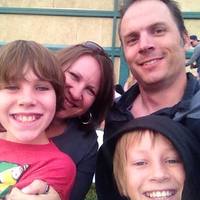
Douglas County's Macaroni Kid is a FREE weekly e-newsletter, website, and event calendar so you can find family fun locally. Proudly serving families from Highlands Ranch to Parker, Castle Rock to Lone Tree, and everything in between. Contact me anytime at kyrieandsam@macaronikid.com.

© 2024 Macaroni KID
All Rights Reserved.